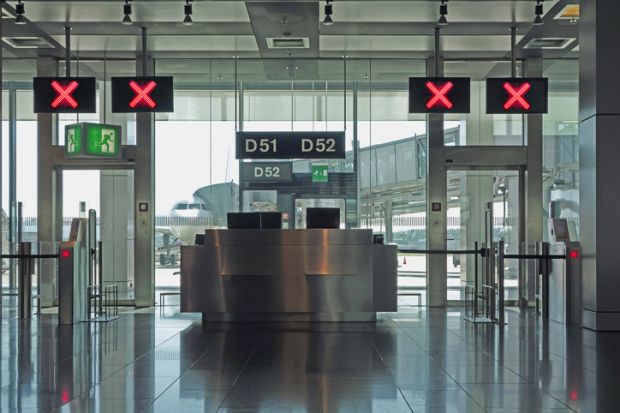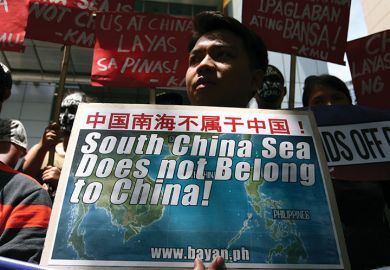Beijing has blocked Charles Sturt University professor Clive Hamilton and Alex Joske of the Australian Strategic Policy Institute thinktank from entering China, taking largely symbolic action against two of Australia’s highest-profile critics of the Chinese Communist Party.
The state media announcement of the ban on 24 September called the researchers and their work “anti-China". The report in the official Global Times also mentioned Australia’s decision earlier this month to revoke visas for two Chinese humanities scholars because of a security agency investigation.
Professor Hamilton, a professor of public ethics, began researching Chinese interference in Australian political and civil life after witnessing Chinese students disrupt a pro-Tibet protest outside Parliament House in 2008. He followed up his influential 2018 book Silent Invasion with this year’s Hidden Hand: Exposing How the CCP is Reshaping the World.
Mr Joske, who provided research support for Silent Invasion, is an analyst who was raised in China, and who produces reports warning that Australian universities’ research collaborations with China may undermine Australia’s national interest.
His August report, “Hunting the Phoenix”, suggested that academics involved in China’s Thousand Talents Plan recruitment scheme were facilitating intellectual property theft from overseas universities, including in Australia. Another report last year warned Australian universities not to collaborate with 87 top civilian universities in China because of their alleged links with the military.
The ban on travelling to China seems to be largely symbolic, because the border is still closed to almost all foreigners during the Covid-19 pandemic, and the two Australian academics are not currently working in China.
Professor Hamilton said the ban was “completely unexpected” but that he had been on “Beijing’s enemy list” for some years. “This decision by Beijing sends a very strong message to scholars in the West who are studying China, and the message is pretty clear – if we take a dislike to your work, then you will at a minimum be banned from the country.
“That ramps up the pressure on scholars for self-censorship, which is already rampant. [It] means that the West will have fewer independent China analysts who can provide us all with a good understanding of what’s happening in that vast nation.”
But he said the ban would not make any material difference to his research or writing. “I realised three years ago, after being denounced by Chinese officials and state media, that it would be dangerous for me to go to China so I decided that I would not go back as long as the Chinese Communist Party rules the country. It would be too dangerous for me.”
Mr Joske posted on Twitter that he had already found “the personal risk from traveling to China too high” and had not applied for a China visa “in years”.
He tweeted that the ban was “the latest in a series of attempts by the Chinese Communist Party to punish those who shine a light on its actions” and that he would continue to study “globally important issues”.
Register to continue
Why register?
- Registration is free and only takes a moment
- Once registered, you can read 3 articles a month
- Sign up for our newsletter
Subscribe
Or subscribe for unlimited access to:
- Unlimited access to news, views, insights & reviews
- Digital editions
- Digital access to THE’s university and college rankings analysis
Already registered or a current subscriber?








